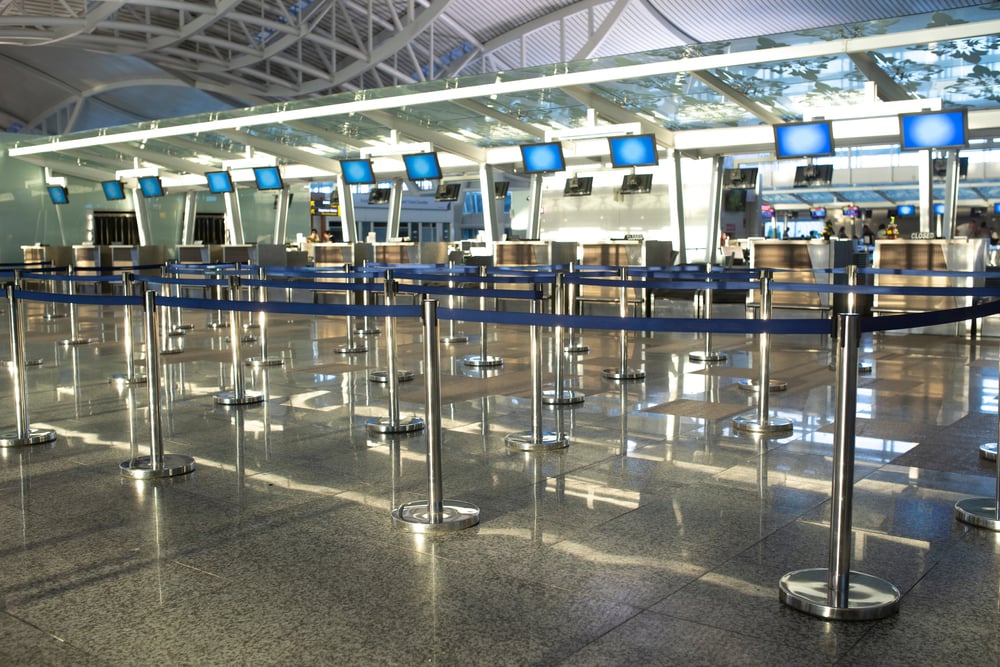The COVID-19 pandemic has created novel challenges for the audit profession that could have lingering impacts on the quality and reliability of independent accounting firm’s work if not carefully addressed. The increased reliance on remote auditing needs to be carefully managed particularly for auditors with clients in areas like China and Europe, where travel restrictions limit site visits compared to domestic locations that can be visited with COVID protocols in place. Management, audit committees, and investors all need to be aware of the limitations that auditors are operating under and the steps that can be taken to ensure that audit quality remains robust during this period.
Typically, audit field work provides a critical foundation for forming an audit opinion. There are certain key audit functions, such as inventory counts, verification of real estate holdings, and inspection of critical assets, which are extremely challenging to perform in a virtual manner. For this reason, the scope of an audit would in normal times entail spending a number of days or even weeks at the client location with an audit team working under the supervision of the audit partner.
In addition to those routine tasks, time onsite provides the invaluable opportunity for an auditor to ask questions and exercise the professional skepticism that is an essential part of the role of an independent accounting firm. In face-to-face meetings, senior management is more likely to open up about business issues and concerns they might hesitate to disclose in an email or phone call. There are opportunities to speak with employees at multiple levels of the organization to see if responses are consistent or if there are issues that require further testing and verification. Original documents and key operations can be scrutinized with a gimlet eye. This type of on-the-ground intelligence is invaluable as a comparison point for financial and operational data produced by the company and confirmations from third parties.
Impact of Travel Bans
But today’s COVID-related travel restrictions have disrupted this model. As of today, most of Asia, the European Union, Canada, Mexico, and even the Bahamas have restricted travel from the U.S. Until the rates of COVID-19 infection change dramatically or a vaccine is developed, it is not practical to fly in a team of auditors to engage in field work and the associated activities that go along with that.
The risks of reduced access are particularly acute in geographic regions that have historically had lower levels of transparency, less mature financial and regulatory systems, and higher risk of potential corruption. In these parts of the world, the ability of local managers to find willing counterparties to produce fraudulent confirmations and falsify financial transactions is much higher. For this reason, on-the-ground diligence with a proper level of professional skepticism and use of non-traditional audit techniques may be required to issue a reliable audit opinion. Simply comparing documents from multiple sources for internal consistency is prone to failure. Recent discussion of the lack of inspections by the PCAOB of local member firms auditing U.S.-listed companies, including major multi-national corporations, has heightened the attention on the risks of inconsistent audit standards across jurisdictions. While ensuring consistent application of audit principles and gathering reliable evidence in countries such as China has always been a challenge, firms without audit partners on the ground to supervise the work now face a much higher risk of missing critical information.
For foreign issuers listed on U.S. stock markets, a higher level of education and ongoing reinforcement of the importance of internal controls, identification of conflicts of interest, and financial transparency is required part of the auditor’s job. Establishing a strong working relationship with the Audit Committee of the Board is particularly important in these jurisdictions, since some board members may not fully understand their responsibility to provide independent oversight of the auditor’s work and key accounting policies adopted by the company. Vigorous independence may be viewed as contrary to the values of founder-centered business culture in countries like China and other emerging markets. Such nuanced relationships are very challenging to develop in the absence of in-person meetings, though once established can potentially be sustained through the use of secure virtual meeting technology.
Open and effective communication with management is more critical than ever during a period of severe economic disruption, such as the current pandemic, since management is required to make critical accounting estimates for conditions that lack comparable historical data. The auditor needs to be willing and able to probe the assumptions behind these estimates to determine if they have a reasonable basis and are not being employed to manipulate accrual accounting. In addition, travel restrictions and budget cuts may erode the effectiveness company’s own internal controls for financial reporting. In order to play a constructive role in the review of quarterly financial statements, as well as the annual audit, the independent accounting firm needs to have confidence in the integrity and reasonableness of the information management is providing.
Keys to COVID Era Audit Integrity
In the worst case, limitations on essential audit work could result in a scope limitation to the audit opinion. If those limitations are deemed to be material to the assurance of the financial results, then the auditor would need to express a “qualified opinion,” which could be damaging to investor confidence. If on the other hand, those limitations are both material and “pervasive,” the consequences could be even more severe.
In this event, the auditor would need to express a “disclaimer of opinion,” meaning that it can provide no assurance that the financial results can be relied upon. Pervasive limitations are those that exist due to the auditor’s inability to collect appropriate audit evidence and could result in potential misstatements that are not confined to specific elements or accounts of the financial statements, could represent a substantial portion of the financial statements, or are fundamental to users’ understanding of the financial statements.
Typically, a disclaimer of opinion would be issued only in the most severe circumstances when management has refused to provide the auditor access to evidence that is required to express even a qualified opinion. But if the pandemic were to cause similar material and pervasive lacunae in evidence to support an opinion, the result would be the same.
How should companies and auditors avoid these undesirable outcomes?
- Assess Materiality and Risk Upfront – Auditors should work closely with management and audit committees to assess the risks associated with both producing accurate financial statements and completing an independent audit with a contingency plan that contemplates another year or more of ongoing travel restrictions. Some questions to ask include: What is the concentration of revenue outside of the United States? How many of these jurisdictions qualify as low transparency environments or emerging markets? What is the capability of local audit firm resources to perform required audit scope? In addition, auditors should review the critical accounting estimates that are material to financial results and independently review those with the audit committee. Changes to the staffing and work processes of the company’s internal control function must be evaluated for their potential impact on the reliability of reported financials. This process of consultation should result in a specific COVID-era audit strategy that is customized to the specific operational profile and risks faced by each public company and the capabilities and platform of the independent audit firm to do its work under current conditions.
- Evaluate Staffing & Workflow Needs – Auditors who in the past would fly in teams to do field work in countries with material financial operations will need to reevaluate that approach. The most reliable audit is performed when teams with strong training and oversight, including presence of the audit partner, are able to visit sites deemed critical to the scope of audit work and have in-person discussions with both senior management and multiple layers of the organization. If the audit partner is not able to take part in such activities due to travel restrictions, the audit firm may plan for enhanced coaching and guidance for onsite staff and virtual participation in important meetings. The least desirable path is to outsource material audit work to local firms where the firm that is expressing the audit opinion cannot have a reasonable level of confidence as to the competence, training, and independence of the team actually performing the field work. In the event that the auditor is not able to resolve such issues, companies may wish to evaluate their alternatives so as to avoid having an audit that is deficient or facing a qualified opinion at the end of the audit process.
- Incorporate Advanced Technology – While there are a number of critical audit functions that are contingent on in-person and onsite work, the COVID-19 pandemic has accelerated the adoption of virtual and automated work dramatically. Videoconferencing has become the new norm for most types of meetings and training for the duration of the pandemic and is likely to be prevalent even when the risk of infection subsides. However, this also increases the need for robust cybersecurity and access protocols, given that auditors are regularly working with non-public financial information and engaging in highly sensitive discussions with senior management and the board as financial results are being prepared. Cloud collaboration tools can be used to exchange data with audit clients in a clean and structured manner. In cases where physical access to some original source records is restricted, computer forensics expertise may be deployed to test the integrity of databases and financial reporting systems to identify potential flaws or data manipulation. And the pandemic may accelerate the adoption of artificial intelligence (AI) applications that can analyze and test very large data sets and identify aberrations or unusual patterns in the reported transactions that may warrant additional investigation by the auditor. To the extent that technology is deployed to enhance audit quality, rather than as a crutch or pure cost-cutting measure, the level of assurance may be enhanced by the difficult lessons of the pandemic.
Like any crisis, the COVID-19 pandemic will expose the flaws in unsound methods and create opportunities for unscrupulous operators to take advantage of diminished visibility that the virus has imposed. But as Winston Churchill noted, “We should never let a good crisis go to waste.” For the accounting profession, the COVID-19 pandemic presents the opportunity to reinvent the role of the independent audit to focus on what is essential to our success and what can be usefully reimagined to be more effective and efficient in the future.












.jpg?width=200&name=Chinese%20CFO%20(1).jpg)